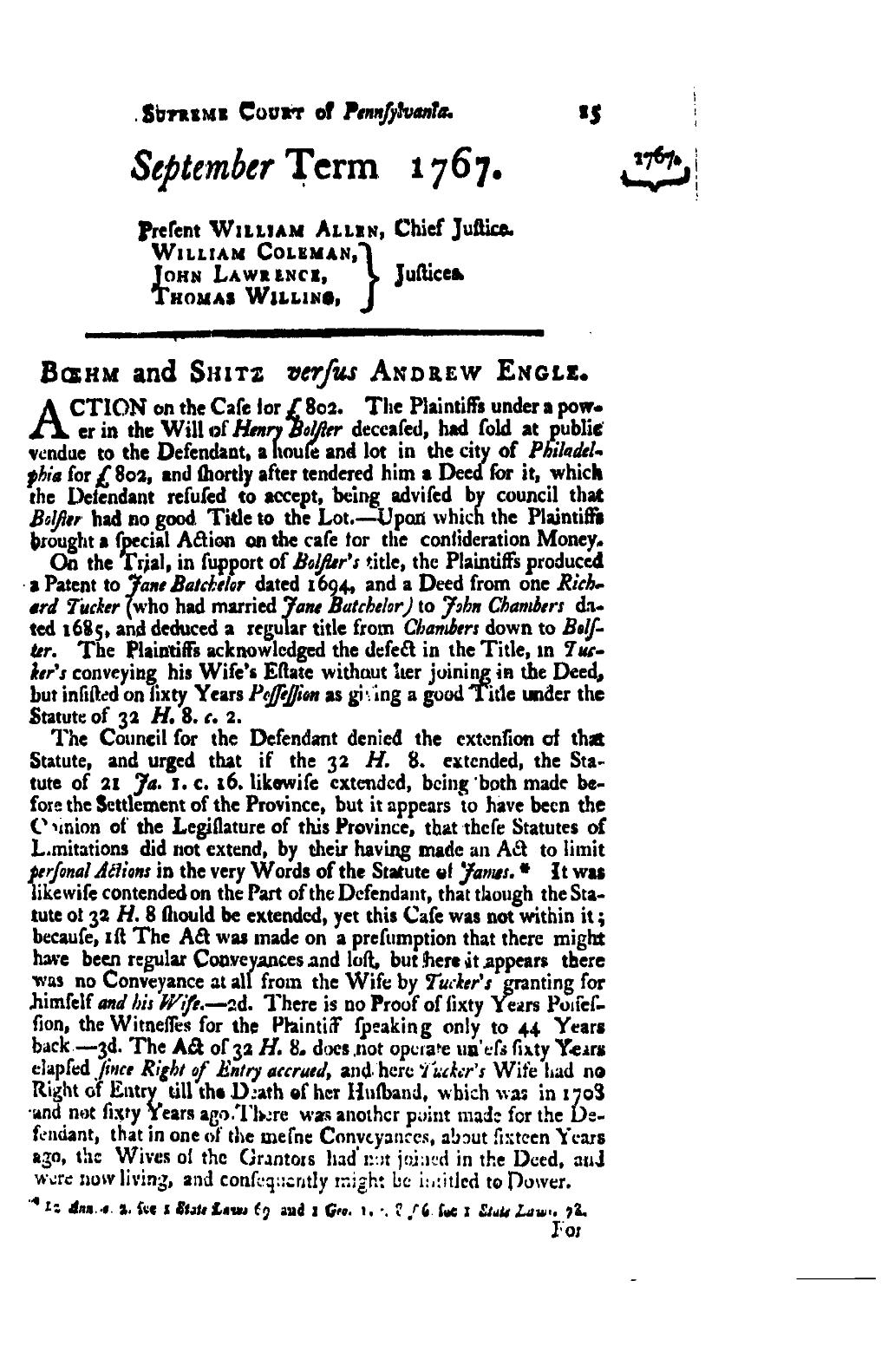1767.
September Term 1767.
| Present William Allen, Chief Justice. | |
| William Coleman, | Justices. |
| John Lawrence, | |
| Thomas Willins, | |
Bœhm and Shitz versus Andrew Engle.
Action on the Case for £802. The Plaintiffs under a power in the Will of Henry Bolster deceased, had sold at public vendue to the Defendant, a house and lot in the city of Philadelphia for £802, and shortly after tendered him a Deed for it, which the Defendant refused to accept, being advised by council that Bolster had no good Title to the Lot.—Upon which the Plaintiffs brought a special Action on the case for the consideration Money.
On the Trial, in support of Bolster’s title, the Plaintiffs produced a Patent to Jane Batchelor dated 1694, and a Deed from one Richard Tucker (who had married Jane Batchelor) to John Chambers dated 1685, and deduced a regular title from Chambers down to Bolster. The Plaintiffs acknowledged the defect in the Title, in Tucker’s conveying his Wife’s Estate without her joining in the Deed, but insisted on sixty Years Possession as giving a good Title under the Statue of 32 H. 8. c. 2.
The Council for the Defendant denied the extension of that Statue, and urged that if the 32 H. 8. extended, the Statue of 21 Ja. 1. c. 16. likewise extended, being both made before the Settlement of the Province, but it appears to have been the Opinion of the Legislature of this Province, that these Statutes of Limitations did not extend, by their having made an Act to limit personal Actions in the very Words of the Statute of James.[1] It was likewise contended on the Part of the Defendant, that though the Statute of 32 H. 8. should be extended, yet this Case was not within it; because, 1st The Act was made on a presumption that there might have been regular Conveyances and lost, but there it appears there was no Conveyance at all from the Wife by Tucker’s granting for himself and his Wife.–2d. There is no Proof of sixty Years Possession, the Witnesses for the Plaintiff speaking only to 44 Years back.–3d. The Act of 32 H. 8. does not operate unless sixty Years elapsed since Right of Entry accrued, and here Tucker’s Wife had no Right of Entry till the Death of her Husband, which was in 1708 and not sixty Years ago. There was another point made for the Defendant, that in one of the mesne Conveyances, about sixteen Years ago, the Wives of the Grantors had not joined in the Deed, and were now living, and consequently might be limited to Dower.
- ↑ 12 Ann. c. 2. see 1 State Laws 69 and 1 Geo. 1. c. 8. s 6. see 1 State Laws 72.
For



